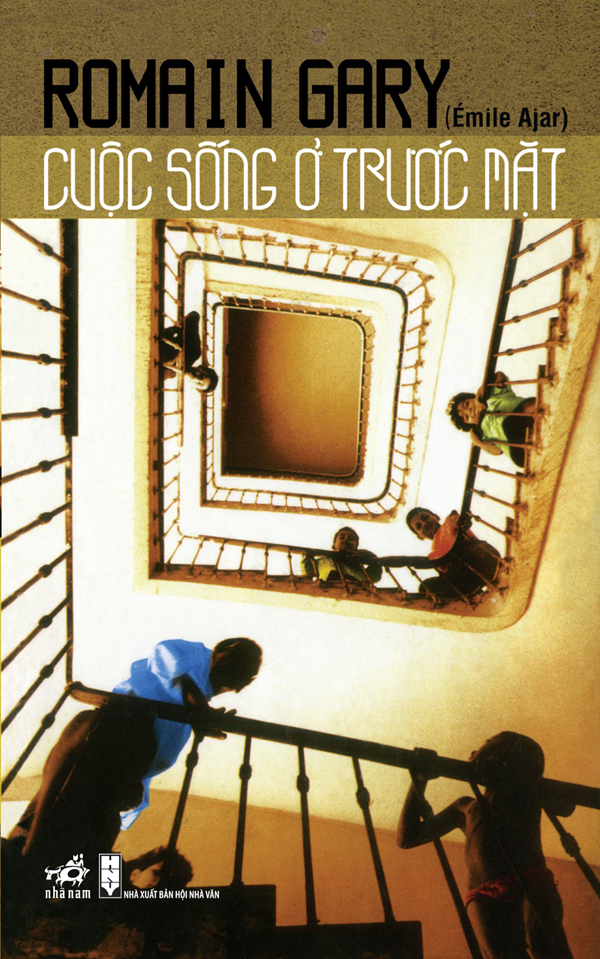What do you think?
Rate this book


258 pages, Paperback
First published September 14, 1975





...
یک روز وقتی آقای والومبا همراه قبیله اش آمدند تا جلوی رزا خانم معرکه بگیرند تا از حالت بهت درش بیاورند آقای شایان هم پشت سرشان وارد شد. لابد شنیده بود که رزا خانم دارد میمیرد و آمده بود تا مردنش را ببیند. پیش از این برایتان ازش حرفی نزده بودم چون آدم نچسبی بود و من و رزا خانم زیاد باهاش جور نبودیم. تنها ایرانی منطقه بل ویل بود و طبقه سوم ساختمان ما زندگی میکرد. کسی نمیدانست چه شده که از اینجا سر در آورده. شغل اش هم معلوم نبود، حتی جاکیش هم نبود. فرانسوی هم درست و حسابی بلد نبود حرف بزند. از من دل خوشی نداشت ولی بعضی وقت ها که از دست بچه ج... ها کلافه میشدم و آقای هامیل خرفت میشد ومرا به جای مومو، ویکتور صدا میکرد و رزا خانم هم از آن حالات "غیبت" بهش دست میداد از روی بی حوصلگی دم در آقای شایان می پلکیدم و گاهی اوقات به خاطر این کارم بهم فحش میداد و بعضی وقت ها هم اجازه میداد وارد خانه اش بشوم و کتابهایش را نگاه کنم. کتاب های به درد نخوری داشت و این را هر دفعه بهش می گفتم. گفتن این حرفم بستگی به این داشت که کی میخواهم از آن جا بیرون بروم چون هر دفعه که این حرف را بهش میزدم از عصبانیت سرخ میشد و با اردنگی بیرونم میکرد و با لهجه ی فرانسوی متمایل به ترکی مرا مادر ج... صدایم میکرد و این تنها نقطه اشتراک آقای شایان با رزا خانم بود چون هر دویشان وقتی عصبانی میشدند مادر ج... بودنم را به رخم میکشیدند. ولی قبل اینکه بیرونم کند به خیال خودش میخواست چیز یادم دهد. فقط در مورد بیگ بنگ و کیهان و تکامل و سلول و مولکول و سرشت انسانیت و چرندیات دیگری شبیه اینها حرف میزد. دکتر کاتز میگفت که این نوع انسان ها از دست رفته اند و باید به حال خودشان رهایشان کرد تا تلف شوند چون به هیچ دردی نمیخورند. البته حرفای دکتر کاتز را به آقای شایان نمیگفتم چون آدم طفلکی بود و دلم برایش میسوخت. هر وقت او را میدیدم یاد آقای هامیل می افتادم آنقدر که با هم تفاوت داشتند. آقای هامیل میگفت که او یک کافر تمام عیار است و من نباید جورم را با او جور کنم. اه گهش بگیرند. الان که فکرش را میکنم میبینم آقای هامیل با آن همه خرفتی اش درست میگفته و حالا کفرم میگیرد که چرا دلم برای آقای شایان میسوخت. باید همان موقع به آقای ندا آمده میگفتم تا ادبش کند آنقدر که آقای شایان مغز من را پر از چرندیاتی کرده بود که بعد این همه سال هنوزم یادم مانده اند. بعضی وقتا کنار پیاده رو با چترم آرتور مینشینم و به این فکر میکنم که اگر روزی پلیس یا تروریست بشم اول از همه حساب آقای شایان را میرسم چون که چرند گفتن بزرگترین جرم است. به قول آقای هامیل، تجربه کهنه ام را باور کنید.
...
“Yo tenía nueve o diez años y, como todo el mundo, ya necesitaba tener alguien a quien odiar”
“… la señora Rosa era una antigua puta que había vuelto deportada de los hornos judíos de Alemania y que había abierto un clandé para hijos de puta a las que se puede hacer cantar con lo de la inhabilitación paterna por prostitución ilícita…”
“La naturaleza puede hacerle cualquier cosa a cualquiera y ni siquiera sabe lo que hace, unas veces son flores y pájaros y otras una vieja judía que vive en un sexto piso y que ya no puede ni bajar a la calle”
“No comprendo cómo puede haber personas que lo tiene todo, que son feas, viejas, pobres y enfermas, y otras que no tienen nada de nada…”
“Para tener miedo no hacen falta motivos”

Candeur de l’âme et du langage
Bon je savais que j’ai toute ma vie devant moi mais je n’allais pas me rendre malade pour ça.
Madame Lola est très belle pour un homme sauf sa voix qui date où elle était champion de boxe poids lourds, et elle n’y pouvait rien car les voix sont en rapport avec les couilles et c’était la grande tristesse de sa vie.
Chaque matin, j’étais heureux de voir que Madame Rosa se réveillait, car j’avais des terreurs nocturnes, j’avais une peur bleue de me trouver sans elle.
Il est venu faire la piqûre à Madame Rosa, ma ça a failli mal tourner parce qu’il s’était trompé d’ampoule et il avait foutu dans le cul à Madame Rosa la ration d’héroïne qu’il se réservait pour le jour où il aurait fini sa désintoxication.